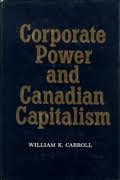

Most ebook files are in PDF format, so you can easily read them using various software such as Foxit Reader or directly on the Google Chrome browser.
Some ebook files are released by publishers in other formats such as .awz, .mobi, .epub, .fb2, etc. You may need to install specific software to read these formats on mobile/PC, such as Calibre.
Please read the tutorial at this link: https://ebookbell.com/faq
We offer FREE conversion to the popular formats you request; however, this may take some time. Therefore, right after payment, please email us, and we will try to provide the service as quickly as possible.
For some exceptional file formats or broken links (if any), please refrain from opening any disputes. Instead, email us first, and we will try to assist within a maximum of 6 hours.
EbookBell Team

4.8
104 reviewsChallenging standard dependency theory, William Carroll argues from empirical evidence that Canada's financial-industrial elite have maintained and consolidated their competitive position at the centre of an inter-corporate network. Corporate Power and Canadian Capitalism thus acknowledges the unusually high degree to which capital is concentrated in a relatively few giant corporations in Canada, but it denies that these commercial interests are subordinated to American corporate capital.
To test the validity of this new perspective on the transformation of indigenous capitalists into a national bourgeoisie, Carroll traces the accumulation of capital in the largest Canadian corporations and the institutional relations that have existed among the same firms since World War II. Instead of selling out to foreign capital, Canadian firms have in fact become increasingly interlocked, and Canadian-controlled firms have been and continue to be the focus of both the industrial and financial sectors, with foreign-controlled companies occupying decidedly peripheral positions.
From this interpretative position, Canada's development is seen as markedly similar to that of other advanced capitalist countries, culminating in consolidation of control under an elite accompanied both by penetration of foreign economies by domestic financial capitalists and a concomitant penetration of the domestic economy by foreign capital.